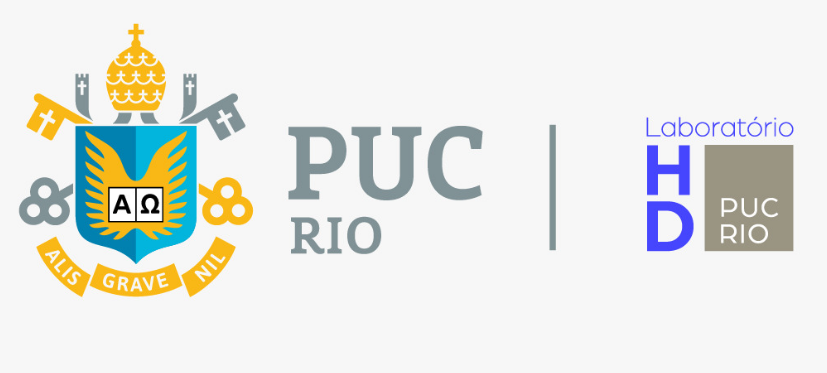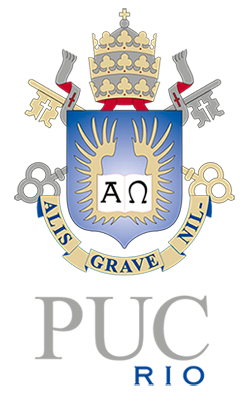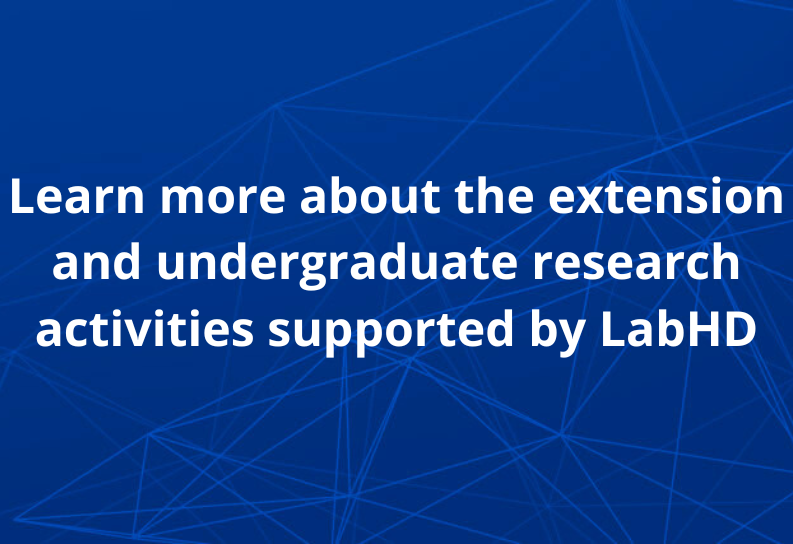In 2024, PUC-Rio’s Digital Humanities Laboratory was part of the extension project “Justiça climática e incidência em políticas públicas internacionais: divulgação científica, juventude e participação cidadã” (in English, “Climate justice and advocacy in international public policies: scientific dissemination, youth and citizen participation”). The project was born with the goal of contributing to the construction of a fairer and more sustainable city based on the pillars of democratizing access to climate information, environmental education and the promotion of citizenship, with the main axis being the exchange of knowledge between peripheral leaders and the PUC-Rio university community for the dissemination of knowledge and capacity building, with the aim of promoting citizen participation in the formulation of international public policies that enable solutions to be devised for the city’s socio-environmental challenges.

Through collaboration between the Institute of International Relations (IRI, from the acronym in Portuguese) and the Digital Humanities Laboratory (DHLab) of PUC-Rio and the Instituto PerifaLab, workshops were held to produce podcasts on the climate agenda, in preparation for the discussions at the G20 meeting in Rio in 2024 and COP 30 in Belém do Pará in 2025. The project was made possible by the Call for Proposals for University Extension in contexts of vulnerability (2024) of the Institute for Advanced Studies in the Humanities at PUC-Rio (IEAHu/PUC-Rio, from the acronym in Portuguese), and was also supported by Rio de Janeiro City Hall and the BRICS Policy Socio-Environmental Platform.
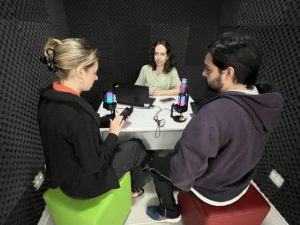
In the second half of 2024, a series of activities were carried out as part of this project, including the creation of a space for podcast production at DHLab and a Podcast Production Workshop with Free Tools, offered by journalist Thiago Kaczuroski. The workshop was open to invited professors, researchers and students from PUC-Rio, as well as the project’s partners – members of the PerifaLab Institute and peripheral leaders linked to the Young Climate Negotiators project.
Three mentoring workshops were also held with undergraduate students from IRI PUC-Rio. The students were able to get to grips with key concepts in the discussion on climate justice, such as environmental racism; and with specific themes, such as the relationship between climate change and food security, as well as discussing the possibilities of communication with political incidence on these agendas.
In addition, DHLab also welcomed undergraduate students from the Tutorial Education Program (PET, from the acronym in Portuguese) of the Institute of International Relations at PUC-Rio to record an episode of the PETCast on Environmental Racism. The episode is now available on Spotify.
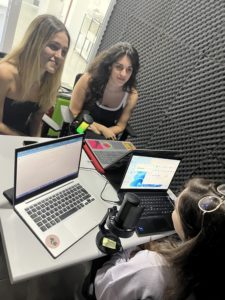
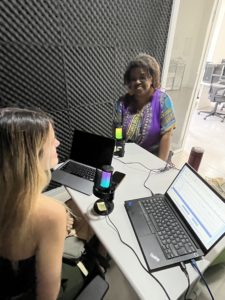
In 2025, DHLab will continue to support undergraduate extension activities, receiving groups of students for training and recording podcasts for scientific dissemination.
